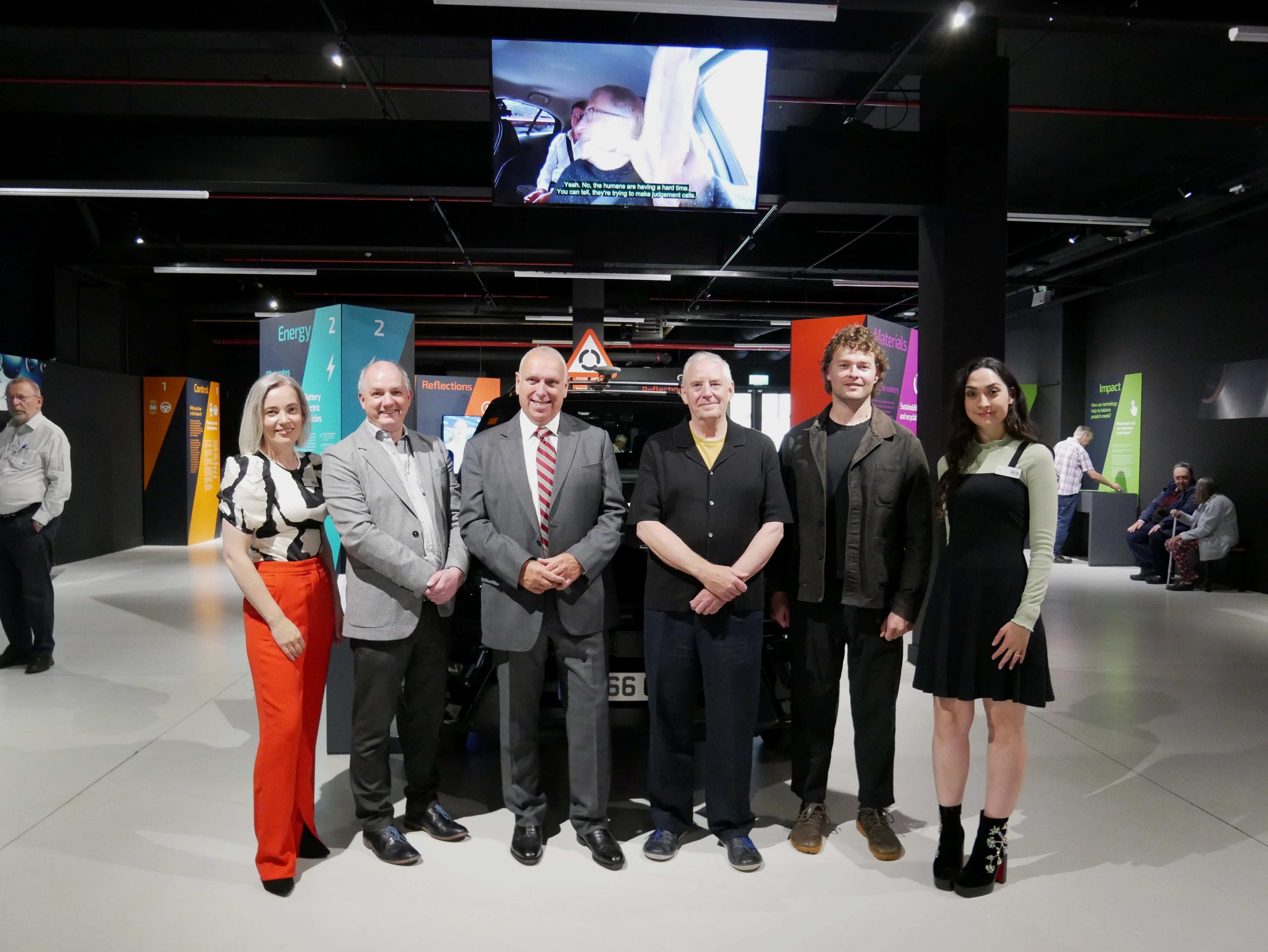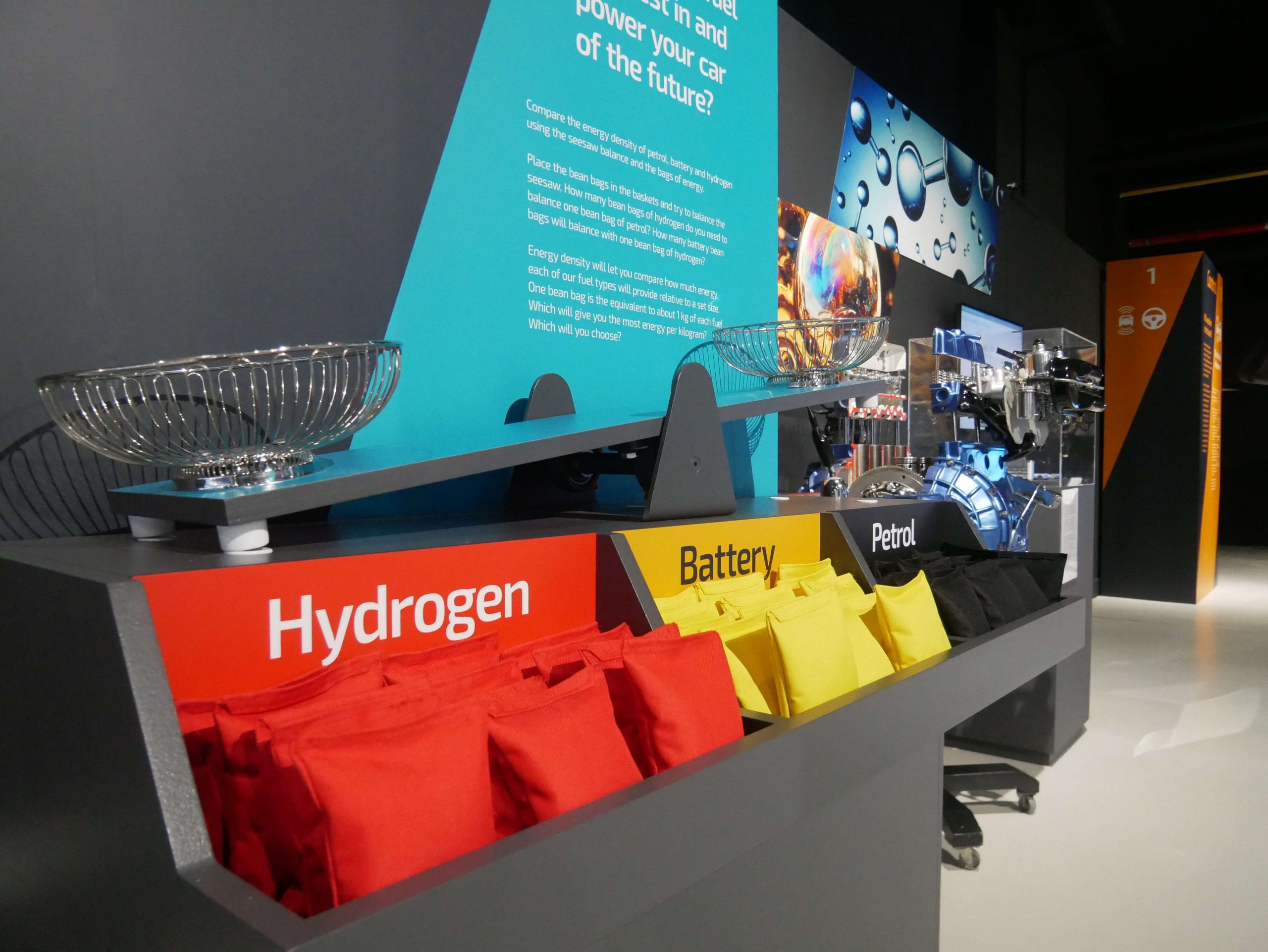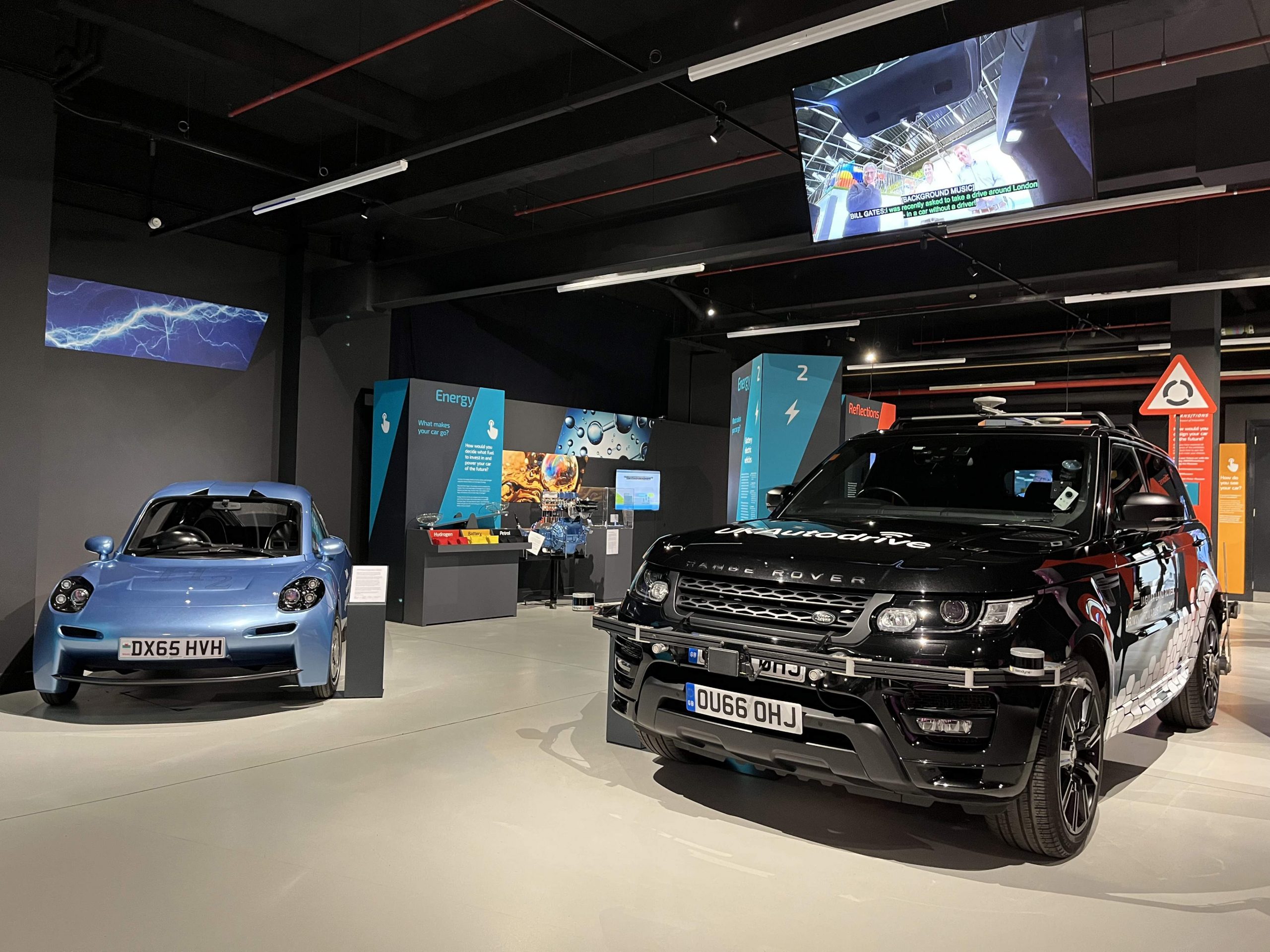New ‘Transitions: The Impact of Innovation’ exhibition is unveiled at The British Motor Museum…
They tell us:
(All words and imaged from The British Motor Museum).
The British Motor Museum has opened another exciting and thought-provoking exhibition entitled “Transitions: The Impact of Innovation”, which will run until summer 2024. The exhibition, which was opened by Kevin Timms, Chair of the Board of Trustees at the British Motor Industry Heritage Trust, explores the technologies that are bringing cars into the future and considers their effects. The car has shaped our world for the better, but also for the worse. As the motor industry strives to find cleaner, safer, and more efficient ways to get us around, the exhibition looks at what its developments mean for our cars.
In the past, the Museum has inspired curiosity about the future of the car, and this exhibition will revisit concepts explored in the 2019 exhibition ‘The Car. The Future. Me’. However, this brand-new exhibition brings a fresh perspective, delving into the practical thoughts and ideas surrounding these new technologies. Visitors will leave the exhibition with a greater insight into the direction car engineering will take in the years to come and how this will affect our day-to-day lives.
The exhibition uses a combination of cars and interactive stations to illustrate areas of future development, such as how cars will be powered, their impact, the materials they use and alternative methods of control. A range of vehicles are on display, including a 1922 Ford Model T, a hydrogen-powered Riversimple Rasa, a sectioned Nissan Leaf electric car, and a 2016 Range Rover Sport autonomous test vehicle. Each car was selected to illustrate a point in the development of the car to date, from the first mass-produced car to a working car powered by hydrogen fuel cells.
These vehicles are displayed alongside a varied range of interactive elements which allow comparisons between different technologies. For example, visitors can compare the energy density of different fuels or test an autonomous car simulator, to see how much they would trust an autonomous car in the real world.
There is a display case at the beginning of the exhibition, containing motoring-related objects that have become obsolete, a sobering reminder of how fast technology is moving. Another display plays host to a collection of alternative materials for car interiors, including options you will never have thought of – fruit peel leather seats, anyone? After exploring the exhibition, visitors will use their newfound knowledge to form their ideal car of the future, based on the four key elements: Energy, Control, Impact and Materials.
Stephen Laing, Head of Collections at the British Motor Museum, added: “We’re delighted to open this fascinating new exhibition. We are in a period of radical change and can see how quickly cars are shifting. Fobs, keypads, push buttons, and smartphones have been steadily replacing the familiar key turn. Electric motors are slowly supplanting internal combustion engines, while drivers are being supplemented with autonomous controls. Transitions looks at what the car will become in the future and how the industry will take us there”.

Access to the exhibition is included with standard Museum admission tickets. The Museum has held its visitor prices for 2023 for even greater value! Museum entry costs just £40 for a family in advance or £44 on the day, £14.50 for adults in advance or £16 on the day, £12.50 for concessions in advance or £14 on the day, £9 for children (5-16 years) in advance or £10 on the day and under 5s go FREE. There is also the option to Gift Aid or donate your entry fee at the time of booking and upgrade your ticket to an Annual Pass in return, at no extra cost.
To find out more information about the Museum, please visit the website at https://www.britishmotormuseum.co.uk.
Follow The British Motor Museum on social media:
Twitter @BMMuseum Facebook www.facebook.com/BritishMotorMuseum
Instagram www.instagram.com/britishmotormuseum
LinkedIn www.linkedin.com/company/britishmotormuseum

